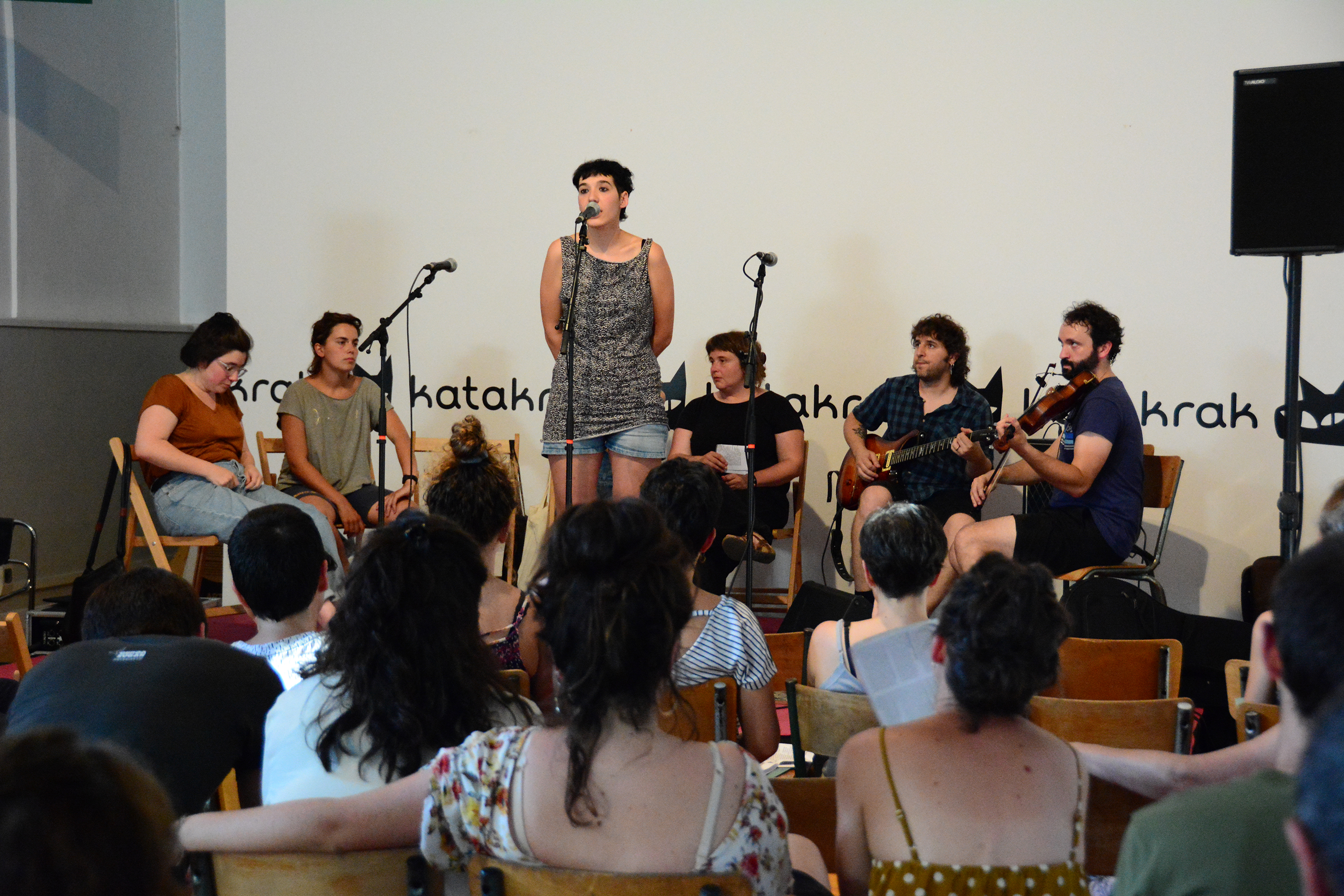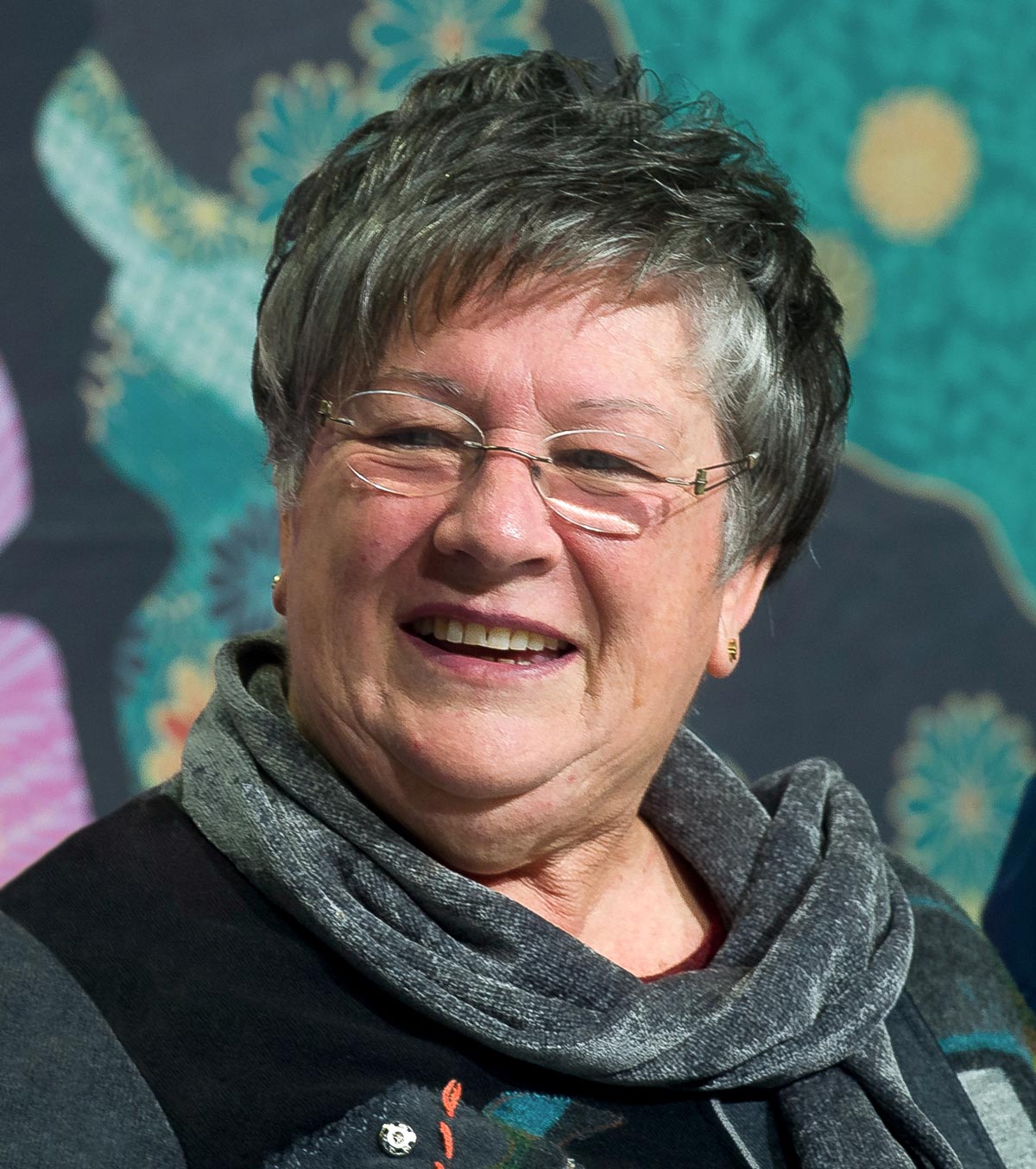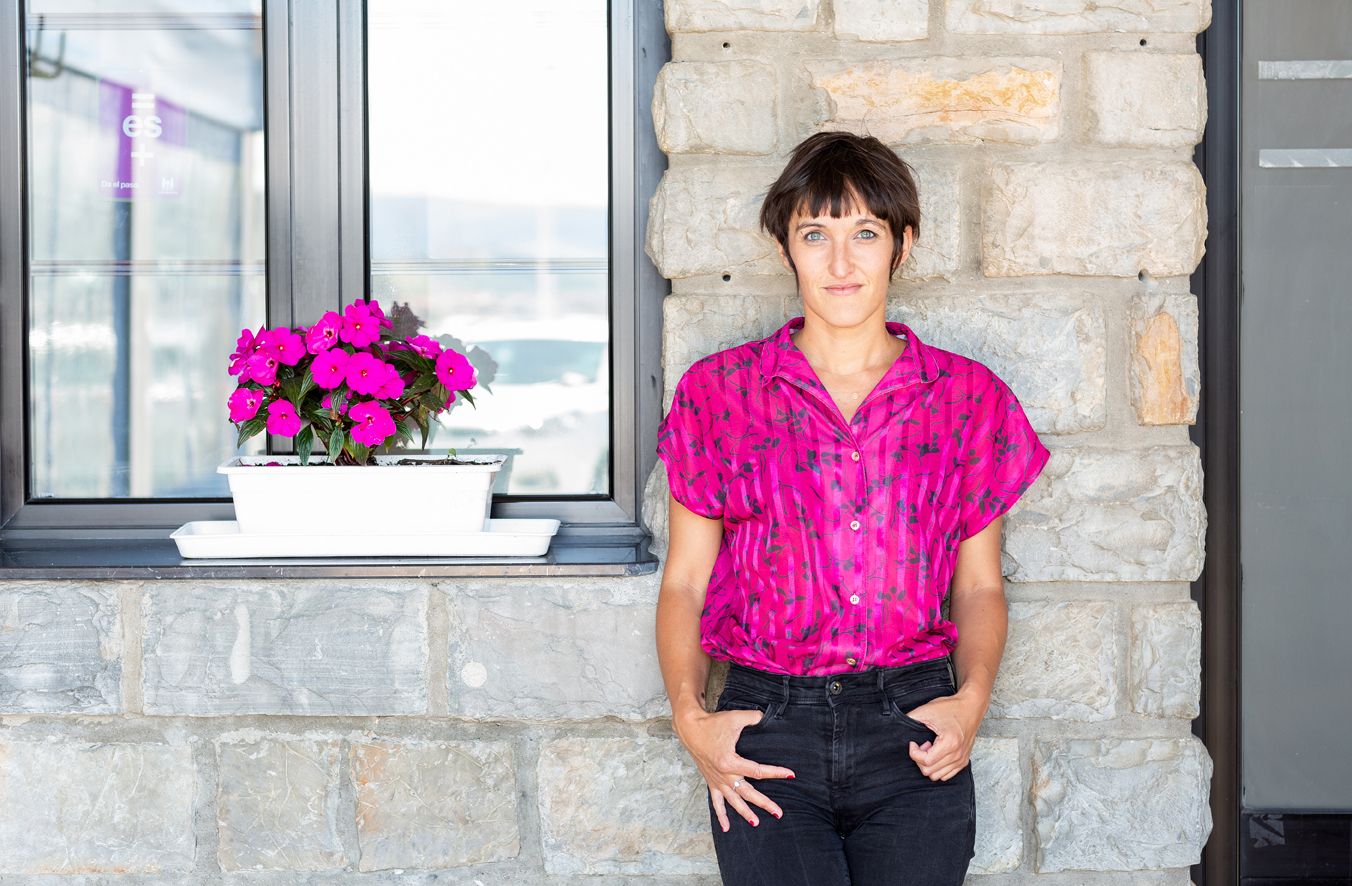I'd like to change all of this.
- It is no coincidence that this is the chronicle of an action by bertsolaris. 26 June in Pamplona, Katakrak.

We're public bodies in the plaza. We've become a public body on stage and on stage. Our voices have made speeches. We are now spectacular and that makes us suspicious. Now and here we are bertsolaris because those who preceded us opened the way and invited us to walk with them. Even if we think about a thousand and one times why we keep singing bertsos. And thinking, we're also minds who think, who reflect, investigate and question. We laugh at ourselves, we love humor if we don't use the verticality of humor to defeat anyone else. We like to sing with our friends, we're a group, and that's why sometimes we get tired of holding everybody's flag in one chair. That is why, and against, we are contradictions that enter the wild jungle. We are women* bertsolaris, bertsolaris and women*, ready to give a feminist view of Bertsolaris. We do not want to continue to be a coincidence.
Despite the attempt, I cannot bring to this article all the ideas we share in the Bertsolaritza course from a gender point of view, as the experience we shared for two days was as rich as intense. It is no coincidence that it is organised within the summer courses of the EU and starts filling the seats quickly. In fact, women* bertsolaris have been talking about this issue for a long time, as we have been told in the round table by Kristina Mardaras, Arantzazu Loidi and Estitxu Arozena since they took the place. After the actions of bertsolaris, in the long interviews in the car back home, in the meetings between Askizu and Artaunsoro and in the bertso eskolas of empowerment, he has left the street in the family. More than a course, the Katakrak Hall has been an open space for the community of the Bertso microworld to raise its doubts and discourses and raise new questions.
To round off the two days, Saioa Alkaiza, Nerea Elustondo, Miren Amuriza and Maider Arrangi offered a bertso directed to all audiences, accompanied by the themes of Danele Sarriugarte and the music of Gari Otamendi and Ixak Arruti. It takes a lot of causality for four women* to share the same scenario, and the four bertsolaris took the opportunity to sing this causality with humor and depth. They began to think about how they got here and brought to the song songs they had never given them, so that everyone laughed and made a fine critique. There were also current issues such as the parents' fears of possible attacks at parties or the case of La Manada. But the afternoon was approaching, and after two days of mental upheaval, both the public and the bertsolaris needed humor. The contradictions appeared unjustly to the micro: the emotional suffering in the union after March 8, the crew's criticism of a friend's mutilation, the relations between the feminist daughter and the newly divorced mother, the tribute to the mediocre Bertsolaris, the doubts of the loggers. Contradiciously, the listener burst into crackles. And finally, the claim: we'd like to change all of this.
Kristina Mardaras, beste gauza askoren artean, bertsolaria da. Euskal Herriko Bertsolari Txapelketa Nagusian parte hartu zuen lehen emakumea izan zelako da ezagun, bertso munduan. Baina, baita hamaika bertso-saiotako antolatzaile eta entzule gisa ere. Izan ere, plaza utzi zuen,... [+]























